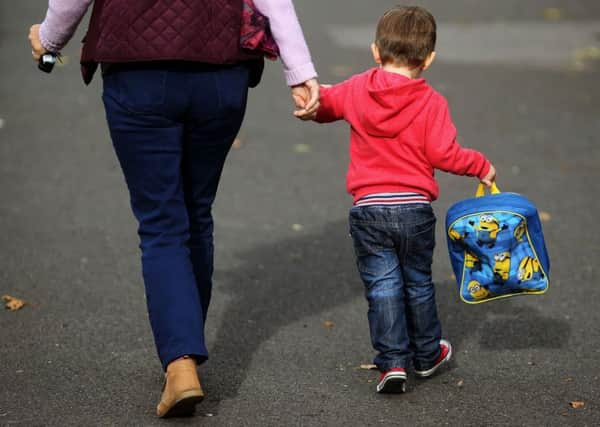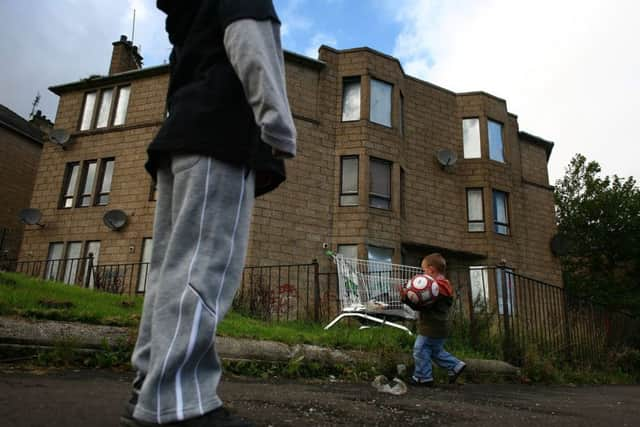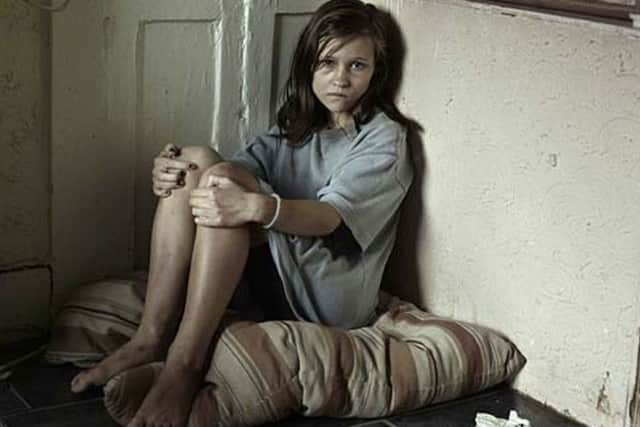Child poverty is a national scandal for four million youngsters who face decade of misery unless we act now – Mark Russell


As the new chief executive of The Children’s Society, I ask myself and I ask you: what do we want to achieve for children in the next 10 years?
For 12-year-old Abilene it’s hard to even contemplate the future, when she has moved house seven times and she doesn’t know where she will be living next. Eve carries the adult burden of knowing how much her mother struggles for money, concealing their poverty from her friends. For Jaden, the presents his friends got over Christmas are another reminder of how he doesn’t fit in.


Advertisement
Hide AdAdvertisement
Hide AdThe last decade has seen alarming changes for children and young people: their wellbeing has plummeted, demand for mental health support has soared and child poverty is rapidly climbing.
Much of government policy around children is focused on education, but increasingly schools are becoming foodbanks as parents struggle to keep their heads above water and put food on the table. In the UK, more than four million children are growing up in poverty. If as a nation we are truly committed to building a brighter future for our children, tackling child poverty has to be a cornerstone of that future.


Advertisement
Hide AdAdvertisement
Hide AdThis must start with reform to the benefits system, which millions of families rely on in order to make ends meet. Following several years of freezes in benefits, families have increasingly felt the squeeze on their finances as costs of living have risen faster than support available to help meet those costs. While it is welcome that the Government has announced an end to the benefit freeze from 2020, further investment is also needed to restore some of the value lost in recent years.
We would also like to see an end to the “two-child limit” on children’s benefits. This policy, introduced for children born after April 6, 2017, means that in families where there are already two or more children, the child element in Universal Credit and in tax credits – worth £2,780 per child per year – is restricted to the eldest two children. Losing nearly £3,000 per child per year is a huge amount of money for families and we have seen the two-child limit is having really damaging consequences for low income families and the children in them.
However, increasingly councils are at the forefront of the fight against child poverty – supporting local families with dealing with the difficulties they see in front of them. So reform to the national social security system is not enough on its own. Better support to enable councils to take action on child poverty is also crucial.
For many years we have been calling for better emergency support through local welfare assistance schemes, which are designed to help families facing a financial crisis – when they don’t have money for an essential such as food, heating, a fridge or even nappies. These emergencies can arise very quickly – such as Kay who needed money to buy new school uniforms for her children after they fled domestic abuse – and can have devastating impacts on families and children if they’re not responded to quickly.
Advertisement
Hide AdAdvertisement
Hide AdThe ability of councils to support families like Kay’s facing a crisis has been undermined by massive cuts to their budgets as a whole, but also the removal of ring-fenced funding for local welfare assistance. Our research has found that one in seven local authorities in England no longer run a local welfare scheme at all, whilst many others have scaled back funding and the support on offer.
It is no different here in Yorkshire, where a recent Freedom of Information request found that between 2015 and 2019, Barnsley Council reduced its spending on local welfare assistance by 77 per cent, East Riding Council by 72 per cent and Kirklees Council by 58 per cent.
Other councils such as North Yorkshire, York and Rotherham have either maintained their levels of spending on crisis support or slightly increased them, but faced with a continued squeeze on their funding, all authorities will have to make difficult decisions when setting their future budgets. That’s why our wish is that the Government makes sure each local council gets a dedicated pot of cash which has to be spent on crisis support.
We owe this help to families to make sure they have that safety net there to catch them if they ever need it. That really would mean in this new decade we begin to make our country a fairer and more just place, so that children can thrive not just survive.
Mark Russell is chief executive of The Children’s Society. He tweets @markrusselluk